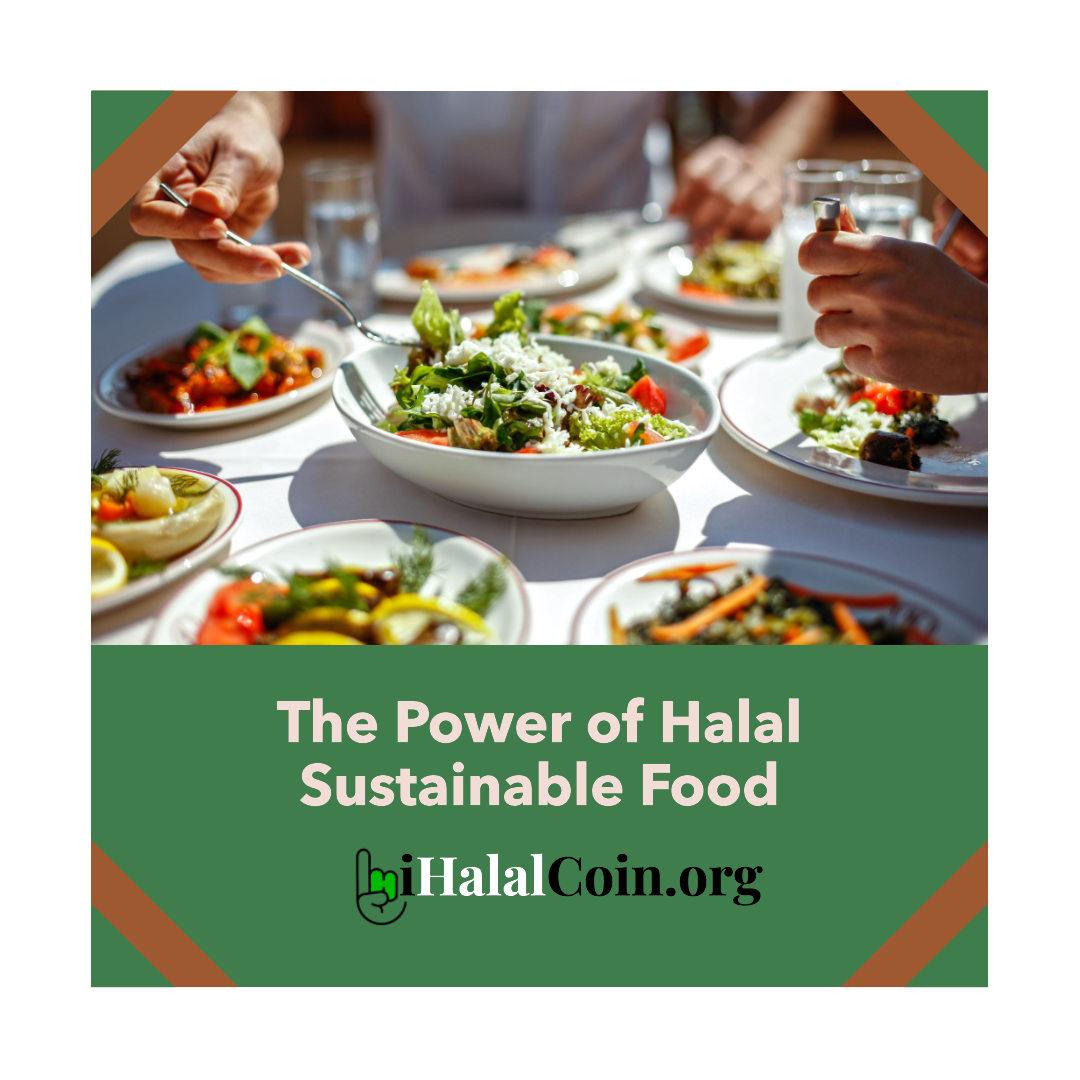Halal, an Arabic term meaning “permissible,” is a concept deeply rooted in Islamic law that extends beyond food to encompass all aspects of life. In the context of food, Halal refers to dietary rules that Muslims follow, but its principles also align with sustainable and ethical food practices. This article explores the intersection of Halal and sustainable food practices, providing insights into how these two concepts can work together to promote a healthier and more sustainable world [1][2].
The Concept of Halal in Food Practices
Halal food practices are based on Islamic dietary laws outlined in the Quran. These laws prohibit the consumption of certain foods, including pork and alcohol, and mandate specific slaughtering practices for meat to be considered Halal. The principles of Halal food practices, such as respect for the environment, animal welfare, and food safety, align with the principles of sustainability [3][4].
For example, the Quran encourages moderation in consumption, discouraging waste. This principle aligns with the sustainability goal of reducing food waste. Additionally, the emphasis on animal welfare in Halal slaughtering practices parallels the sustainable farming principle of humane treatment of animals [5].
Halal and Sustainable Agriculture
Halal principles can be applied to sustainable agriculture in several ways. For instance, Halal-certified farms must ensure animals are well-cared for, fed a natural diet, and slaughtered humanely, all of which are key aspects of sustainable agriculture [6].
There are several examples of Halal-certified farms practicing sustainable agriculture. For instance, Willowbrook Farm in the UK is a Halal-certified organic farm that practices rotational grazing and uses renewable energy sources, demonstrating how Halal and sustainability can coexist [7].

The Role of Halal in Promoting Ethical Meat Consumption
Halal meat production emphasizes ethical treatment of animals. Animals must be healthy at the time of slaughter, and the process must cause as little pain as possible. These practices align with the ethical considerations of sustainable food practices, which also prioritize animal welfare [8].
Moreover, Halal slaughtering practices require that each animal is slaughtered individually and that other animals do not witness the slaughter, reducing stress and fear among the animal population. These practices contribute to a more ethical and humane approach to meat consumption [9].
Halal and Healthy Eating
Halal food principles promote healthy eating habits. The dietary laws encourage consumption of clean and wholesome food. Furthermore, the prohibition of certain harmful substances, such as alcohol and pork, contributes to a balanced and nutritious diet [10].
Halal food practices also encourage mindful eating and gratitude, which can lead to healthier eating habits. By being mindful of what and how much we eat, we can make healthier choices and reduce overconsumption and waste [11].
The Impact of Halal on the Global Food Market
Halal food practices have a significant influence on the global food market. The demand for Halal-certified products is growing, not only among the Muslim population but also among non-Muslims who view Halal certification as a mark of quality and safety [12].
Halal certification can also promote sustainable food practices. For a product to be Halal-certified, it must meet certain standards, including ethical and sustainable production methods. This can encourage companies to adopt more sustainable practices [13].
Case Studies
Several companies and organizations have successfully integrated Halal principles into their sustainable food practices. For instance, Saffron Road, a Halal-certified food company in the US, is committed to sustainability, offering products that are not only Halal but also organic and non-GMO [14].
Another example is the Islamic Food and Nutrition Council of America (IFANCA), which promotes Halal and provides Halal certification. IFANCA encourages sustainable practices among Halal-certified companies, demonstrating the potential for Halal and sustainability to work together [15].
Conclusion
The principles of Halal and sustainable food practices are closely aligned, with both emphasizing respect for the environment, animal welfare, and ethical consumption. As the demand for Halal-certified products grows, so too does the potential for these products to contribute to a more sustainable food system. The future of Halal in sustainable food practices looks promising, with more companies and consumers recognizing the benefits of this intersection [16].
References
[1] “Growing Food for the Body and Soul”
[2] “If You Want to Eat Clean and Green, Is the Future Halal?”
[3] “Sustainable Halal Meat is Making Inroads in Muslim Communities”
[4] “The Benefits of Halal Certification for Cosmetics and Food Products”
[5] “How halal meat became big business”
[6] “Islam and Food Systems: Position Paper”
[7] “Sustainability: The eco-halal revolution”
[8] “What is Halal Food? Meaning, Types and Halal Meat Certification”
[9] “Some Muslims Want a Greener Ramadan With Less Meat”
[10] “Islam & Sustainability | Islamic Finance & the Sustainable Development Goals (SDGs)”
[11] “Halal and Sustainable Food Practices: A Comprehensive Guide”
[12] “The Halal Market: Opportunities and Challenges”
[13] “Halal Certification: An International Marketing Issues and Challenges”
[14] “Saffron Road: Journey to Better”
[15] “IFANCA: Promoting Halal and Sustainable Practices”
[16] “The Future of Halal and Sustainability”

